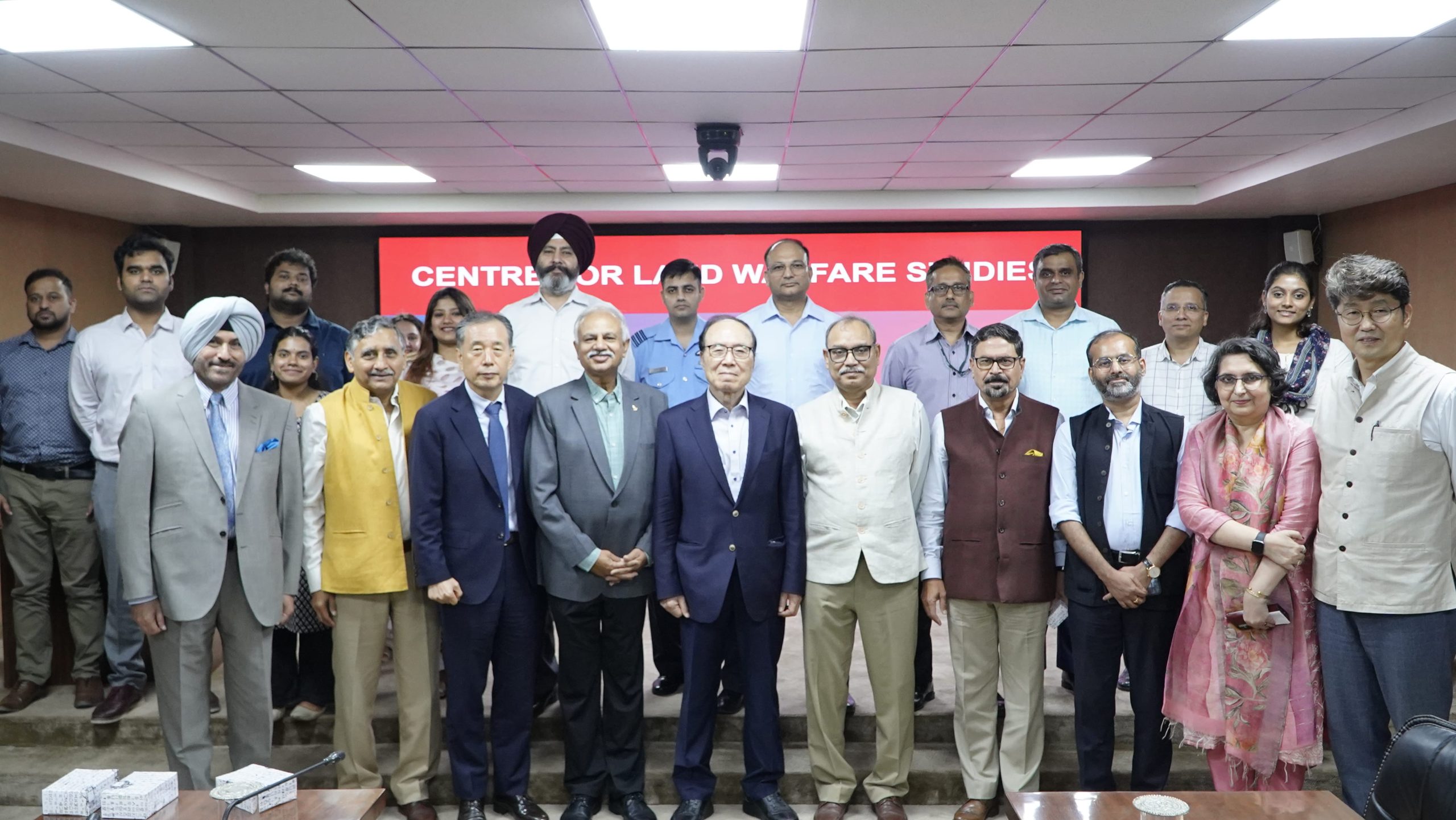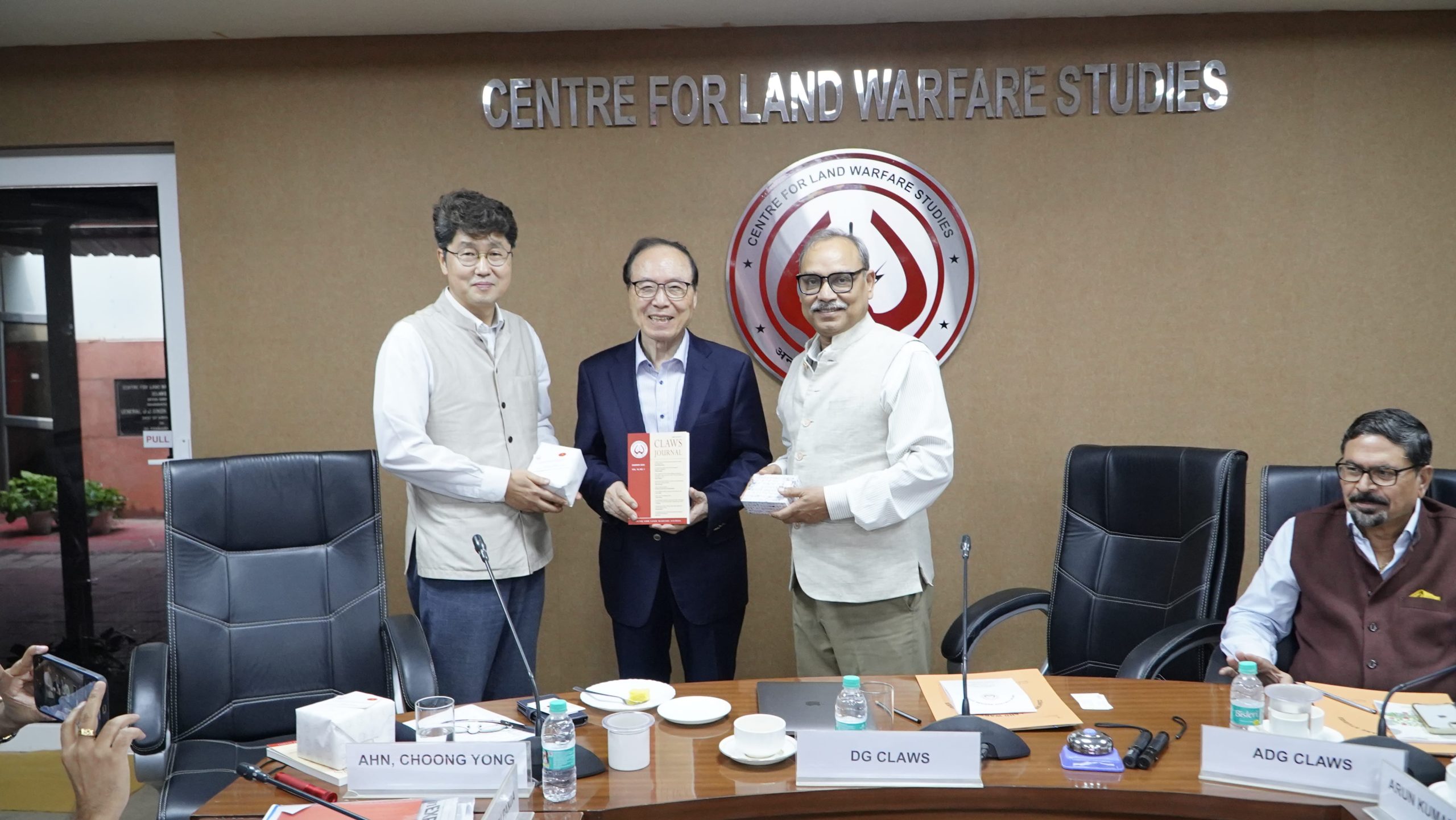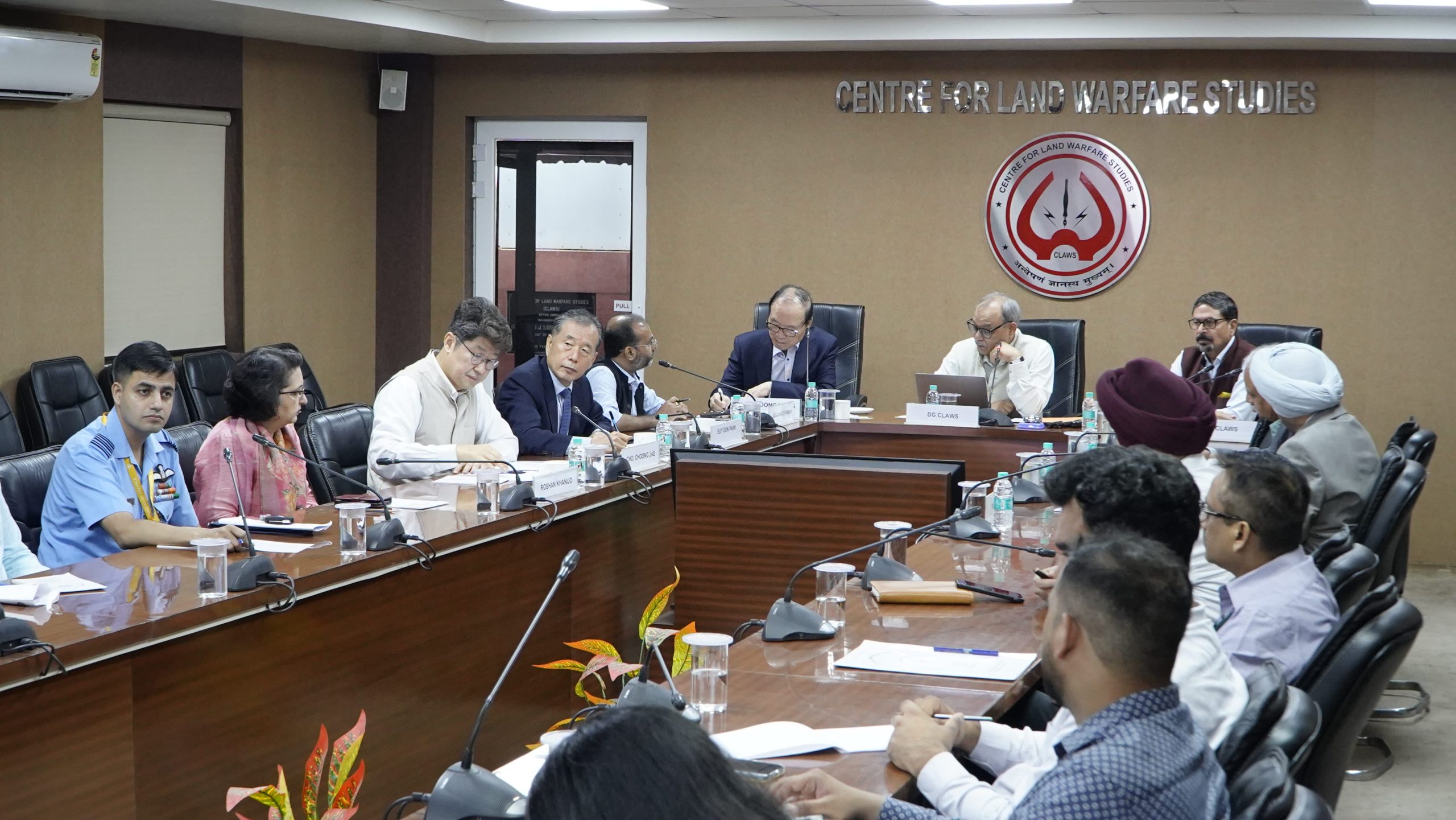EXECUTIVE SUMMARY
The roundtable on India–South Korea New Age Defence Cooperation, organised by Centre for Land Warfare Studies (CLAWS) on 28th August 2025, represented a timely and significant dialogue on the evolving strategic and industrial relationship between the two nations. Bringing together eminent scholars, policymakers, and senior defence officials, the discussion provided an important platform to assess how India and South Korea can deepen cooperation across defence production, emerging technologies, and regional security. The event underscored the growing convergence between India’s quest for self-reliance under Atmanirbhar Bharat and South Korea’s ambition to consolidate its status as a global leader in defence manufacturing and advanced technology. The roundtable brought together a distinguished panel including eminent South Korean scholars Dr Prof Ahn Choong Yong and Dr Cho Choong Jae, alongside leading Indian strategic experts Dr Jagannath Panda, Lt Gen Arun Kumar Sahni PVSM, UYSM, SM, VSM (Retd), Vice Adm AB Singh PVSM, AVSM, VSM (Retd), and Air Marshal GS Bedi AVSM, VM, VSM (Retd), for an in-depth exchange on advancing bilateral defence cooperation and technology partnership.
Dr Ahn Choong Yong highlighted South Korea’s extraordinary transformation from a developing economy into a major industrial and defence power, achieved through perseverance, reverse engineering, and strategic technology licensing despite early scepticism from international observers. He observed that Korea’s strengths in semiconductors, shipbuilding, automotive production, and dual-use technologies have made it a vital global player. India, he argued, now faces a comparable challenge in balancing strategic autonomy with international collaboration as the world’s largest arms importer and the holder of the third-largest defence budget. South Korea, currently the tenth-largest arms exporter and aspiring to reach fourth position, is therefore well placed to partner with India, as demonstrated by the success of the K9 Vajra-T co-production programme. Dr Ahn also noted that both governments are pursuing an ambitious bilateral trade target of US$50 billion by 2030, supported by sustained Korean investment from companies such as Hyundai, Samsung, and LG.
Dr Cho Choong Jae reflected on the steady institutional deepening of ties, from the 2010 Strategic Partnership to the 2015 Special Strategic Partnership, which broadened cooperation to include shipbuilding, cybersecurity, maritime security, and emerging technologies. He underlined the need to improve project success rates, encourage local manufacturing, and create mechanisms such as an ‘iCET-Trust’ to advance innovation and technology exchange in the defence sector.
Dr Jagannath Panda placed the relationship within the wider Indo-Pacific and global security context. He noted that the disruptions following the Trump administration and the Ukraine conflict have prompted many nations to reassess their defence dependencies and diversify supply chains. In this environment, he suggested, India should extend preferential access to South Korea similar to Japan’s and explore trilateral and ‘mini-lateral’ collaborations with ASEAN countries such as Vietnam, the Philippines, and Indonesia. He also advocated expanding cooperation into soft security areas—cybersecurity, undersea cables, maritime governance, and technology transfer—as precursors to deeper defence-industrial collaboration.
Indian defence leaders outlined several actionable areas for cooperation. Lt Gen Arun Kumar Sahni PVSM, UYSM, SM, VSM (Retd) identified hybrid land systems, smart ammunition, sensors, counter-drone capabilities, and defence electronics as promising domains for co-development under joint intellectual property frameworks. Vice Adm AB Singh PVSM, AVSM, VSM (Retd) emphasised naval aviation, lithium-ion submarine batteries, autonomous vessels, and underwater sensors, while Air Marshal GS Bedi, AVSM, VM, VSM (Retd) called for joint R&D and innovation centres, bilateral air exercises, and collaborative development of advanced aerospace and space-based navigation systems.
The roundtable concluded that India and South Korea stand at a strategic inflection point. With complementary industrial capacities, shared Indo-Pacific priorities, and aligned economic and technological ambitions, both nations have the opportunity to move beyond transactional exchanges towards a long-term, co-developed defence partnership that reinforces regional security and mutual strategic autonomy.


















